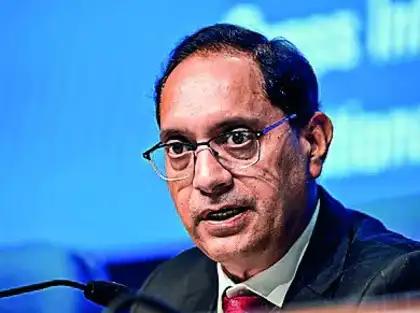 Image Source: Economic Times
Image Source: Economic Times
India’s Portfolio Management Services (PMS) industry, long the playground of high-net-worth individuals and seasoned investors, has reached a defining inflection point—marked by a surge in investor sophistication, technological advances, and a fast-evolving regulatory landscape. Speaking at the Association of Portfolio Managers in India (APMI) annual conference in Mumbai, SEBI Chief Tuhin Kanta Pandey underscored this critical juncture, outlining both the historic growth witnessed and a forward-looking vision anchored in innovation, transparency, and robust governance.
Key Highlights: Growth Metrics, Industry Evolution, and Regulatory Momentum
Pandey noted that the number of registered portfolio managers climbed from 361 in FY21 to 479 as of June 2025, underlining the ecosystem’s dynamism.
The PMS client base has grown at a compound annual growth rate (CAGR) of 12%, while discretionary PMS (where clients delegate decisions) soared 13% annually and now comprises 96% of total clients.
Discretionary assets under management (AUM), excluding retirement funds, grew by 23% per year—reflecting deepening trust in the PMS model and active wealth management.
Today’s PMS landscape is worlds apart from its early days in the 1990s, with India’s GDP ballooning from USD 279 billion in 1993 to USD 3.9 trillion in 2024, spawning a dramatic expansion in private wealth and demand for bespoke investment solutions tailored to sophisticated goals.
Pandey highlighted PMS as a vital provider of tailor-made portfolio strategies that better match risk-return preferences and distinct financial objectives—far beyond what standard mutual funds can deliver.
Structural Reforms: Enabling Ease, Efficiency, and Investor Protection
SEBI’s push to streamline and modernize the PMS ecosystem has manifested in several strategic initiatives:
Digital onboarding for clients, making the process seamless and secure.
Overhauled disclosure and documentation norms, aiding transparency and comparability.
Infrastructure guidelines and stricter oversight for PMS distributors to safeguard client interests.
Optional secondary benchmarking to provide clearer performance context.
Master circulars and operational manuals—offering clarity and consistency in compliance.
Significant improvement in PMS registration turnaround, now averaging 49 days (down from 74).
Moreover, investor confidence is being bolstered by new safeguards, including mandatory performance reporting, high watermark fee structures, grievance disclosures, and requirements for transparency when investing with related parties.
Mandate for Caution: Trust, Professionalism, and Misleading Claims
Pandey called on portfolio managers to remain vigilant about governance and client stewardship, warning that lapses in professional conduct or exaggerated performance claims can rapidly erode hard-won trust and stifle the momentum of growth. He stressed that the industry’s competitive edge lies in delivering genuine customisation and consistently communicating clear information about risk and returns. He urged market participants to focus on educating clients, responsibly reporting performance, and communicating the real advantages and trade-offs of PMS compared to pooled investment products.
Digital Transformation and Innovation as Core Growth Drivers
A key theme in Pandey’s address was the urgent need for technological enablement. From digital onboarding to ongoing client engagement and real-time reporting, the PMS space must embrace cutting-edge digital solutions—not just to improve efficiency, but as a pillar of competitive differentiation and regulatory compliance. SEBI’s adoption of technology in supervision and monitoring serves as both guide and challenge for the industry, encouraging nationwide portfolios to move toward greater automation and data-driven management.
The Role of APMI and the Road Ahead
Pandey praised APMI for fostering structured dialogue and collaborative problem-solving between the regulator and the PMS community. He welcomed the association’s initiatives to improve data reporting, offer training, and enhance investor outreach through simplification and awareness campaigns—especially as APMI marks four years since its formation.
Looking to the Future: Sustaining Momentum
Pandey’s concluding message was clear: the inflection point that India’s PMS industry now faces can only lead to sustained growth if the sector continues to strengthen processes, invest in technology, prioritize transparency, and, above all, keep clients’ interests at the centre. SEBI stands ready to support this through forward-looking, innovation-friendly regulation and ongoing collaboration with market players.
In essence, India’s PMS industry has evolved into a vibrant force at the heart of the nation’s wealth management revolution. Navigating this inflection point successfully will require the dual engines of trust and innovation—charting a path that is resilient, inclusive, and globally competitive.
Sources: Economic Times, Business Today
Advertisement
Advertisement



